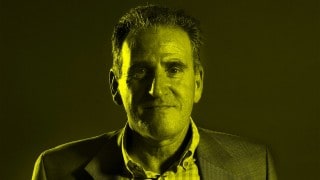IF you think we have it bad in today’s stagnant, mismanaged, low-growth Western economies, think of our ancestors. Their fate was truly hopeless. Global GDP per person grew by 0.04 per cent a year between the years 1000 and 1820, a note from Capital Economics reminds us – in other words, incomes and quality of life stagnated almost completely for over eight centuries. There were no tangible technological improvements – the main driver of economic growth, together with trade – or progress of any kind in the production of goods, services or agricultural output. It was a disastrous period for humanity which was only broken by the industrial revolution.
True, there were spurts of progress prior to the late 18th century – in the Chinese Middle Kingdom or medieval Italian City States – and some growth was created by extending trade. But none of it was sustainable. By contrast, the world today is still growing at a historically fast rate, propelled by emerging markets.
But some believe that long-term technological progress is slowing dramatically – and that this means an eventual return to stagnation. Pessimists point to the huge difference between relying on couriers on horseback to communicate, and using telephones; and today’s trivial differences between different generations of iPhones.
Robert Gordon, the economist, argues that “the past 250 years could turn out to be a unique episode in human history” in a paper for the National Bureau of Economic Research. He thinks there were only three real waves of innovation and that their impact on growth is petering out, to be replaced by nothing: first, steam engines, cotton spinning, steam ships and railroads; second, electricity, the internal combustion engine and indoor plumbing, as well as complementary innovations such as phones, cars, electrical appliances and planes; and the computer revolution, including mobiles, the effects on productivity growth of which Gordon now believes are already largely exhausted.
Luckily, he is wrong: technology is still progressing; and it takes years for the full impact of inventions to be felt. James Watt patented his steam engine in 1769 but the effect on productivity growth was felt only after 1830, says Andrew Kenningham of Capital Economics, author of an excellent paper on growth prospects beyond 2020. Humphry Davy was demonstrating electric lights in 1808 but US factories only became properly electrified in vast numbers in the 1920s. We still don’t have electric cars with proper batteries.
The computer revolution will take decades to work itself out. Many changes have barely begun: the internet will revolutionise education, we will get voice recognition instead of typing and much more besides. Driverless cars – with computers in charge – will turn car journeys into productive time. 3D printing will revolutionise parts of manufacturing.
Biotechnology is already key to the pharmaceutical and plant and livestock industries. Genetics will help tackle disease. Nanotechnology will be equally transformative. Aqua culture and the harvesting of aquatic plants will dramatically boost global food supplies. Shale gas is already drastically reducing the cost of energy in those countries that have embraced it. Eventually, the capture of free solar energy will become easier. Technology, progress and human ingenuity are the world’s greatest resource. As long as we retain and strengthen the institutions of capitalism, and keep the peace, humanity’s long-term prospects remain great.









